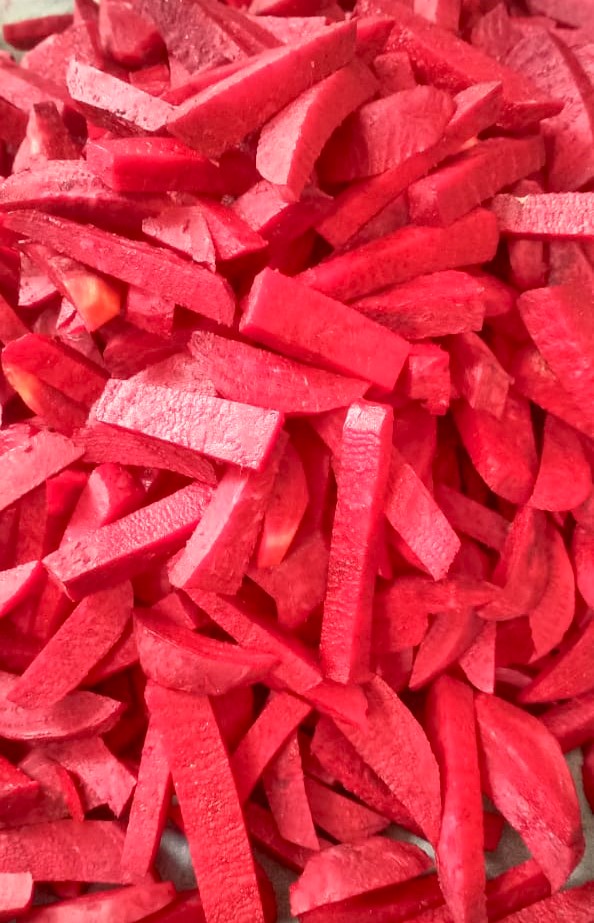
The Ultimate Guide to Green Vegetable Benefits
Introduction:
Green vegetables have long been celebrated as the cornerstone of a balanced diet. Their vibrant hue is not just a treat for the eyes but also an indication of the myriad of nutrients they pack. From the leafy spinach that Popeye swore by to the crunchy goodness of green beans, every green vegetable brings with it a unique set of health benefits. In this guide, we’ll delve deep into the multifaceted advantages of incorporating green vegetables into your daily diet.
General Benefits of Green Vegetables:
Green vegetables are nature’s multivitamins. They are nutrient-dense, meaning they provide a large amount of vitamins, minerals, and other health-promoting compounds with relatively few calories. Here are some universal benefits of consuming green vegetables:
- Rich in Nutrients: Most green vegetables are loaded with essential vitamins and minerals. For instance, they are a great source of vitamins C, K, E, and many of the B vitamins. They also provide essential minerals such as calcium, magnesium, and potassium.
- Antioxidant Properties: Green vegetables contain various antioxidants, which help combat free radicals in the body. This can reduce the risk of chronic diseases and slow down the aging process.
- Dietary Fiber: They are a rich source of dietary fiber, which aids in digestion, helps maintain healthy blood sugar levels, and lowers cholesterol.
- Low in Calories: Most green vegetables are low in calories but high in volume, making them excellent for weight management as they can make you feel full without consuming too many calories.
1. Benefits of Green Vegetables for Bones
Overview: Strong bones are the foundation of a healthy body, and green vegetables play a pivotal role in ensuring bone health.
- Kale & Spinach: These leafy greens are not only delicious but also powerhouses of calcium and vitamin K. Both these nutrients are vital for bone health. While calcium provides strength to the bones, vitamin K ensures that calcium is effectively utilized by the bones and not deposited in the arteries.
- Broccoli: Often a child’s least favorite but undoubtedly one of the most nutrient-packed green vegetables. Broccoli is rich in calcium, which is essential for maintaining bone density, especially in older adults.
- Collard Greens: These are another excellent source of calcium. They can be sautéed, added to soups, or even used as a healthier alternative to tortilla wraps.
- Usage Tips: To maximize the benefits of these vegetables for bone health, try incorporating them into your diet in various forms. Whether it’s a spinach and feta stuffed chicken breast or a creamy broccoli soup, the options are endless.
2. Benefits of Green Vegetables for Digestion
Overview: A healthy digestive system is crucial for overall well-being. Green vegetables, with their high fiber content, play a significant role in promoting digestive health.
- Brussels Sprouts & Green Beans: These are fiber-rich champions. Fiber aids in digestion by adding bulk to stools, preventing constipation, and promoting a healthy gut microbiome.
- Peas: These tiny green gems are a dual source of soluble and insoluble fiber. While soluble fiber can help lower bad cholesterol levels, insoluble fiber aids in digestion and prevents constipation.
- Zucchini: This versatile vegetable is not only delicious but also provides a gentle and effective source of dietary fiber, promoting regular bowel movements.
- Usage Tips: Brussels sprouts can be roasted with a drizzle of olive oil and a sprinkle of salt for a crunchy side dish. Green beans can be steamed, sautéed, or added to casseroles. Peas can be incorporated into salads, soups, or even mashed as a side dish. Zucchini can be spiralized into noodles, grilled, or used in stir-fries.
3. Benefits of Green Vegetables for Weight Loss
Overview: Weight management is a concern for many, and green vegetables can be your allies in this journey due to their low-calorie and high-nutrient profile.
- Lettuce & Cucumbers: These are perfect salad staples. They are low in calories, making them ideal for those watching their weight.
- Celery: Known as the ultimate low-calorie snack, celery can be enjoyed with a dip or even juiced for a refreshing drink.
- Mustard Greens & Watercress: These are nutrient-packed with minimal calories. They can be added to salads, soups, or even enjoyed as a garnish.
- Usage Tips: Create a refreshing salad with lettuce, cucumbers, and a light vinaigrette dressing. Celery sticks paired with hummus make a great snack. Mustard greens can be lightly sautéed with garlic for a flavorful side dish, and watercress can be used in sandwiches or as a peppery base for salads.
4. Benefits of Green Vegetables for Skin
Overview: A radiant complexion isn’t just the result of topical skincare products; it’s also significantly influenced by what you consume. Green vegetables, with their plethora of vitamins and antioxidants, can be your skin’s best friend.
- Spinach & Swiss Chard: Both are rich in vitamins A, C, and E, which are essential for skin health. Vitamin A helps in skin cell production, vitamin C aids in collagen formation, and vitamin E acts as a powerful antioxidant.
- Green Bell Peppers: These are packed with vitamin C, which is vital for collagen production, ensuring that the skin remains firm and youthful.
- Arugula: This peppery green is rich in sulfur, which aids in detoxifying the skin, leading to a clearer complexion.
- Usage Tips: Spinach can be blended into smoothies, added to omelets, or used in salads. Swiss chard can be sautéed with some garlic and olive oil. Green bell peppers can be enjoyed raw, grilled, or stuffed. Arugula makes a spicy addition to salads or can be used as a pizza topping.
5. Benefits of Green Vegetables for Vision
Overview: Eye health is often overlooked, but it’s crucial. Green vegetables offer a range of nutrients that can help maintain good vision and prevent eye diseases.
- Kale & Collard Greens: Both are rich in lutein and zeaxanthin, antioxidants that can help reduce the risk of chronic eye diseases, including age-related macular degeneration and cataracts.
- Peas & Green Beans: These vegetables are good sources of zinc, which plays a vital role in maintaining the health of the retina.
- Spinach: Apart from its bone and skin benefits, spinach is also beneficial for the eyes. It’s rich in beta-carotene, which the body converts into vitamin A, essential for good vision.
- Usage Tips: Kale can be turned into crispy chips, added to soups, or used in salads. Collard greens can be used in stews or as wraps. Peas and green beans can be steamed, added to casseroles, or tossed in salads. Spinach, with its versatility, can be incorporated into numerous dishes.
Other Noteworthy Benefits of Green Vegetables
While the above sections highlighted specific benefits, green vegetables offer a plethora of other health advantages:
- Immunity Boosters: Vegetables like broccoli and Brussels sprouts are rich in vitamin C, which can enhance the body’s natural defense mechanisms.
- Anti-inflammatory Properties: Vegetables such as bok choy and celery have compounds that help reduce inflammation in the body.
- Detoxification: Beets and artichokes aid in liver detoxification, promoting overall health.
- Heart Health: Leafy greens like lettuce and kale can help reduce bad cholesterol, promoting heart health.
Incorporating green vegetables into your daily diet can pave the way for a healthier and more vibrant life. Their benefits are vast, from promoting bone health to ensuring radiant skin. So, the next time you’re at the grocery store, make sure to stock up on these green wonders!
FAQs
- What are the top green vegetables for bone health?
Spinach, broccoli, and okra are among the top green vegetables that promote bone health due to their high calcium and vitamin K content. - How do green vegetables aid in digestion?
Green vegetables, especially those like Brussels sprouts and artichokes, are rich in fiber, which aids in digestion by promoting regular bowel movements and preventing constipation. They also contain enzymes that can help break down food more efficiently. - Can eating green vegetables help with weight loss?
Absolutely! Green vegetables like mustard greens and watercress are low in calories but packed with nutrients. They can make you feel full without adding many calories, making them a great choice for weight management. - How do green vegetables benefit the skin?
Green vegetables offer a range of vitamins and antioxidants that can enhance skin health. For instance, spinach and Swiss chard are rich in vitamins A, C, and E, which are essential for skin cell production, collagen formation, and protection against free radicals. - Which green vegetables are best for vision?
Kale, collard greens, and spinach are among the top choices for promoting eye health. They contain lutein, zeaxanthin, and beta-carotene, which are essential for reducing the risk of chronic eye diseases and ensuring good vision. - How can I incorporate more green vegetables into my diet?
There are numerous ways to enjoy green vegetables. You can add them to smoothies, salads, soups, or stir-fries. They can also be steamed, grilled, or even eaten raw, depending on the vegetable. - Are there any side effects of consuming too many green vegetables?
While green vegetables are generally healthy, consuming them in excessive amounts can sometimes lead to issues like bloating or an upset stomach, especially for those with sensitive digestive systems. It’s always best to maintain a balanced diet.
Blog Tags:
Green Vegetables, Bone Health, Digestive Benefits, Weight Loss, Skin Health, Vision Improvement, Dietary Fiber, Nutrient-Rich Foods, Immunity Boosters, Anti-inflammatory Foods, Detoxification, Heart Health, Natural Remedies, Healthy Diet, Vegetable Benefits.













